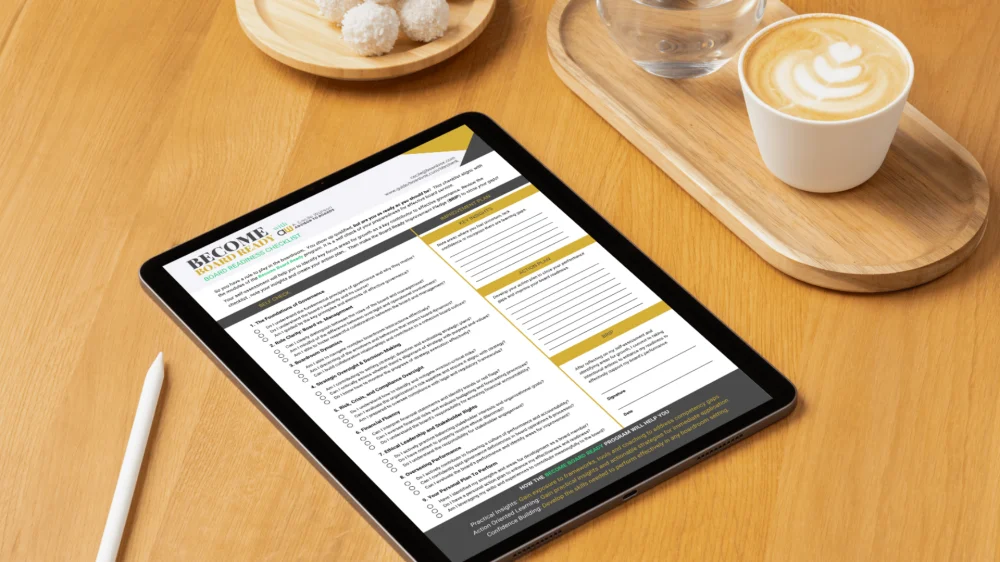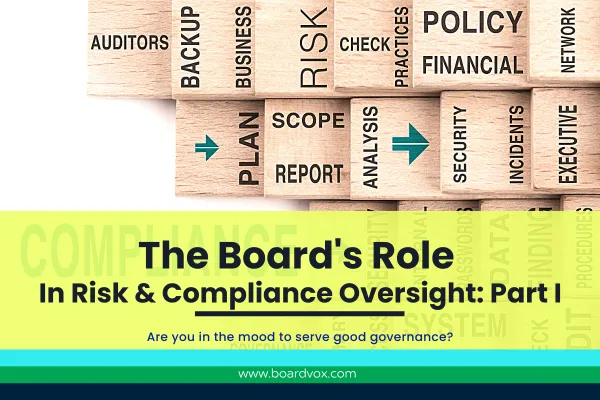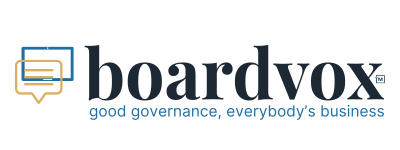Board and Leadership Development for Caribbean Professionals
Global Standards, Local Relevance
How we help
We are the Voice, Expression, and Tone of Good Governance.
Helping organizations across the Caribbean and beyond realize their full potential by educating, informing, and supporting boards, directors, and C‑Suite leaders. Through practical training, strategic tools, and governance advisory services, we enable leaders to create enduring value—for today and the future.
How we help
We are the Voice, Tone and Expression of Good Governance
helping organizations to realize their full potential
by educating, informing, and supporting boards, directors, and c-suite leaders
with the training, tools and services to create the best value for today and the future.

Board, Director, and C-Suite
Training
We equip directors and C-suite leaders to excel in the boardroom through immersive coaching, tailored workshops, and flexible online programs—strengthening governance, decision-making, and leadership effectiveness across Caribbean organizations.

Board Performance
Tools
We deliver comprehensive board evaluations, improvement plans, and digital governance tools designed to assess, strengthen, and sustain board performance in alignment with global best practices.

Board Operating
Support Services
We help boards operate more effectively with retreat facilitation, policy templates, and administrative tools that streamline governance processes and keep boards focused on strategic impact.
Let's reimagine the future of board development.
We believe every director holds the key to unlocking extraordinary boardroom potential—and that the power to drive sustainable economic growth rests with people like you, right there in the boardroom. In an era where reputational risks are at an all-time high, board service has never mattered more. It demands integrity, courage, and vision from the best hearts and minds.
That’s why we’re redefining how boards grow stronger—by making governance easier for smarter boards.
BoardVOX helps directors embrace their profound responsibility, lead with independence and ethics, and champion the principles of good governance that build trust and long-term value.
Coming Again Soon!
Join The Waitlist for Become Board Ready
This checklist is your entry point to the
Become Board Ready Program ...a guide designed to empower directors and aspiring board members to excel in their governance roles.
Download the checklist and get waitlisted for Cohort II of Become Board Ready
Elevate Your Governance Expertise: Master the key principles that drive effective board leadership.
Strengthen Board Dynamics: Foster alignment, trust, and a shared understanding in the boardroom.
Confidently Navigate Your Role: Clarify your responsibilities and deliver value with confidence.
Enhance Strategic Oversight: Stay focused on purpose, accountability, and long-term success.

This checklist is aligned with the proven modules of our Become Board Ready program, so you can start assessing and addressing your readiness immediately.
Complete the form and you'll receive the Board Readiness Checklist directly in your mailbox.
Privacy Disclaimer:
We respect your privacy. The information you provide will only be used to deliver your checklist and occasional updates about governance insights and resources. We will never spam you, sell, or share your information with third parties.
RED FLAGS IN THE BOARDROOM CHECKLIST
Add it to your Board Engagement Toolkit to have a handy guide empowering you to:
Identify potential governance risks early
Be vigilant and avoid corporate governance failures.
Uphold the highest standards of transparency and ethics.



The Board's Role In Risk & Compliance: Part I
“Managing risks is very different than managing strategy. Risk management focuses on the negative threats and failures rather than the opportunities and successes .” - Robert S. Kaplan
Introduction:
Risk and compliance are closely entwined, with compliance risk being a measure of the likelihood of your organization breaking laws and regulations, even if they are new. These two disciplines are key oversight activities for directors due to the board's fundamental role in ensuring the long-term success, sustainability, and ethical integrity of organizations. This premise is supported by various governance codes, regulations, and best practices that emphasize the importance of effective risk and compliance management.
In today's dynamic and increasingly unpredictable business landscape and regulatory environment, directors are under immense pressure to safeguard their organizations from risks and to ensure compliance with regulations. Social media, AI and technology innovations have made stakeholders more savvy and interested in how directors are living up to their fiduciary responsibilities. Matters that may have previously escaped their scrutiny can now rapidly become a public debate that demands their attention.
This post explores the critical components of the board's risk and compliance oversight responsibilities. It aims to equip directors with better understanding of how they can shoulder their part of the responsibility in the boardroom without needing to be a risk management expert. Those who invest in understanding the discipline and dynamics of risk and compliance oversight and who are ready to ask the right questions, are better positioned to guide their organizations towards a resilient and ethically sound future.

With that said, here are 8 key considerations well-thinking directors are following as they seek to elevate their performance in risk and compliance oversight in the boardroom! 👊🏾
1. The Board's Role in Risk and Compliance Monitoring:
In today's complex and interconnected world, risks are inherent in every aspect of business. The board's role in risk monitoring is not merely reactive but proactive. It involves identifying potential risks, assessing their impact on the organization, and implementing measures to mitigate them. By actively engaging in risk monitoring, directors demonstrate their commitment to the organization's longevity and success.
2. A Holistic Approach to Risk Management:
Effective risk management goes beyond focusing solely on financial risks. Directors must adopt a holistic approach that encompasses operational, reputational, strategic, and compliance-related risks. By understanding the interconnectedness of these risks, boards can make informed decisions that safeguard the organization's interests comprehensively.
3. Nurturing a Culture of Compliance:
Compliance with laws, regulations, and ethical standards is the bedrock of an organization's reputation. Boards must foster a culture of compliance throughout the organization, where adherence to rules and ethical behavior are ingrained in every director's conduct and every employee's actions. A culture of compliance not only mitigates legal and reputational risks, but also instills trust among stakeholders.
4. Mitigation Strategies and Crisis Preparedness:
In a rapidly changing landscape, being prepared for crises is a strategic imperative. Boards must actively collaborate with management to develop robust crisis response plans before the crisis occurs, ensuring that the organization can navigate unforeseen challenges with resilience. Directors should regularly scrutinize these plans to ascertain their continued effectiveness and relevance.
5. ESG Considerations in Risk Management:
Environmental, social, and governance (ESG) considerations are increasingly influencing risk assessments. Yes, there is much debate and challenge to the ESG principles. But the merits of sustainable practices is not disappearing anytime soon. In fact, there are now 2 new Sustainability Standards issued by the International Sustainability Standards Board (ISSB) that will come into effect on 01 January 2024. As leaders committed to sustainable growth, directors must incorporate ESG factors into risk management practices. By addressing ESG risks, boards can enhance their organization's long-term performance and fulfill their fiduciary duty to stakeholders.
6. Collaboration between Board and Management:
Collaboration between the board and management is pivotal in managing risk effectively. Directors must create an environment that encourages open communication and information sharing. Such collaboration ensures that the board remains informed about emerging risks and management's efforts to address them.
7. The Role of Compliance Audits:
Compliance audits are invaluable tools for assessing the organization's adherence to regulations and internal policies. Boards should advocate for periodic compliance audits and rigorously review the findings. Acting on the results ensures that the organization's compliance efforts are continuously strengthened.
8. Integrating Risk Management into Strategy:
To achieve true resilience, risk management cannot be an isolated function-it must be integrated into the organization's strategic planning. Boards should challenge management to demonstrate how they consider risks when formulating and executing strategies. This integration ensures that risk management becomes an intrinsic part of the organization's DNA.
Conclusion
As directors, we have the immense responsibility of ensuring that we act appropriately in managing risk and compliance in the boardroom. By embracing proactive risk monitoring, fostering a culture of compliance, and staying informed about regulatory changes, we can elevate the board's performance and drive towards sustaining a resilient and forward-thinking organization.
The role of the director in risk and compliance oversight is just one of their 3 key focus areas in the boardroom. Our last post was on Strategy Oversight, and we will address Financial Oversight in an upcoming post.
In our next post, we will share 8 actionable steps that savvy directors are taking and 8 key questions they are asking in order to elevate their performance in risk and compliance oversight. When directors are consistently and effectively practicing these tactics, the board can attain a high level of assurance that the organization is on track towards a resilient and ethically sound future.
Stay tuned for more enlightening discussions, gripping stories, and actionable insights. And if you haven't already, be sure to subscribe so you never miss a post. Together, we're set to build better boards and build boards better by reshaping the landscape of boardroom leadership, one director at a time.
Know someone who might be interested in this blog? Please be sure to share it with them.
YES, YES ...I GET IT
This is exactly what I need right now.
I'm seeking a network of professionals who understand the challenges of the boardroom.
I want to elevate my leadership and have a real impact in the boardroom.
Continuous learning is crucial in our field, and I'm eager to stay ahead.
I believe in the power of good governance to shape the future of business and communities.
If this sounds like you, then DIVE RIGHT IN!
Join Our Movement As
A Partner In Good Governance.
Helping you avoid SHOULD'VE and COULD'VE ... to done right, every time.

